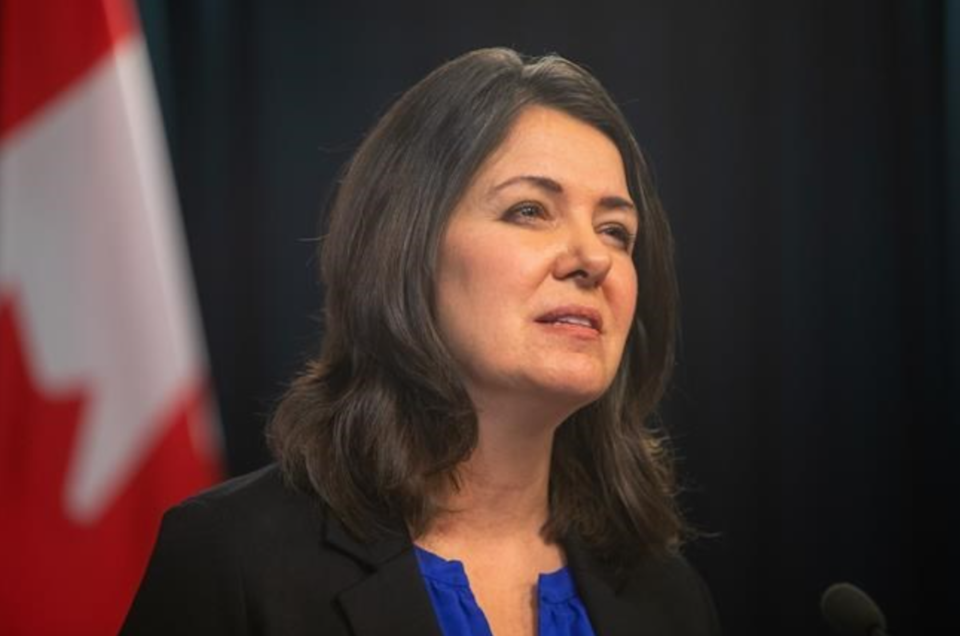With volatile oil prices, the looming threat of tariffs, and Alberta facing “headwinds from every direction,” as Finance Minister Nate Horner described the current economic forecast, it appears unlikely the promised personal income tax cut will be a part of budget announcements later this month. But the Productivity Review Cabinet Committee (PRCC) tasked with “finding savings” to deliver that tax cut has spent months quietly combing through department and program spending, documents reveal.
At a UCP fundraiser in Westlock in August 2024, Premier Danielle Smith told party members she had created a cabinet committee to go through government accounts department by department and program by program, moving “low priority spending into high priority areas and finding savings so that we can deliver on that $750 per taxpayer personal income tax cut.”
Smith said she was joined on committee by Horner and Technology and Innovation Minister Nate Glubish, and unnamed private and treasury board members.
At the time, Smith’s office declined to answer questions about the committee and avoided publicly confirming the existence of the PRCC, saying only that “the premier was referencing the Alberta government’s ongoing process to regularly review government program spending.”
Documents obtained through an access-to-information request show the cabinet committee met throughout fall 2024. As early as June 19, 2024, planning emails were exchanged between executive council staff including the former chief of staff to the premier Marshall Smith, executive director to the premier’s office Rob Anderson, and deputy minister of executive council Ray Gilmour.
By October, various government ministries submitted documents to the committee containing “PRCC recommendations,” “PRCC Redirects,” and “PRCC Next Steps.”
These documents, as well as email attachments and nearly all contents of the emails themselves, were withheld or redacted in accordance with the FOIP Act.
Emails do identify a handful of UCP backbenchers participating in the review panel: Andrew Boitchenko, MLA for Drayton Valley-Devon; Myles McDougall, MLA for Calgary-Fish Creek; Grant Hunter, MLA for Taber-Warner; and Ron Wiebe, MLA for Grande Prairie-Wapiti.
Justin Brattinga, press secretary to the ministry of treasury board and finance, said the members “were chosen based on their experience and roles within government.”
“Government is always working to find savings. The Productivity Review Cabinet Committee was a reflection of ongoing and constant work to reduce duplication, find efficiencies and more effectively use taxpayer money,” Brattinga said.
Wiebe, Hunter, and McDougall did not respond to requests for comment.
At a UCP town hall event in Drayton Valley in August, Smith said she picked Boitchenko to sit on the committee because of his treasury board experience and his reputation for being a hard person to get spending approval from.
The heavily redacted documents confirm the PRCC involved coordinated work between government ministries but offer little insight into the outcomes of that work. As for which programs were found to be unproductive, and where those savings are to be spent, Albertans will find out when Budget 2025 is released on Feb. 27.
Lisa Young, political scientist with the University of Calgary, said it is normally the case that these types of government exercises, where they are looking for spending to cut to lower deficits or offer tax breaks, aren’t public.
“In some ways, what's surprising about this is that you got a clue about its existence because Smith had spoken to the members about it,” she said.
Earlier this week, Horner again warned the province could slip into a deficit in its 2025 budget, and the premier said on her radio show in January prioritizing a balanced budget would likely mean the personal tax cut will have to wait.
Though the postponed tax cut won’t be popular, the PRCC’s spending cuts could still give the Smith government a political edge, Young said.
“Given the circumstances that we're looking at economically over the next number of months, given the Trump administration, the Smith government will be able to claim that it was being a little bit prescient. That it was out ahead of this,” Young said.
“Because governments across the country are going to be struggling with the question of how they can come closer to balancing books in what are likely to be difficult economic times. I suspect in this case, they went looking for savings in order to be able to fund the tax cut, because circumstances appear that they are going to change with Trump's tariffs, it could be that they end up introducing these cost savings in order to lessen the amount of deficit spending that they need to run because of lower government revenues.”



